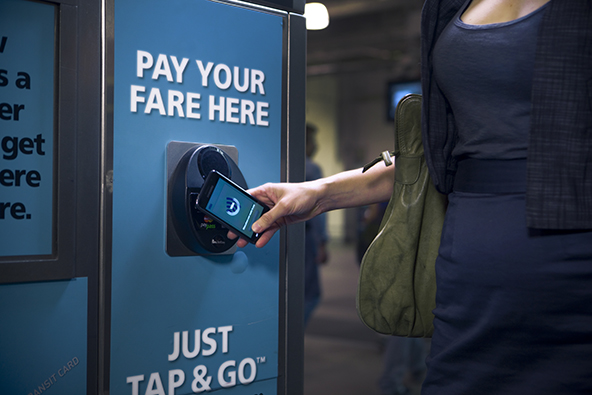In the ever-evolving landscape of online retail, the importance of a smooth, secure, and efficient payment process cannot be overstated. As eCommerce continues to grow, with more consumers and businesses moving online, the mechanisms that facilitate these transactions have come under the spotlight. The role of payment facilitators (PayFacs) is becoming increasingly significant among these mechanisms. Understanding the PayFac model is crucial for anyone involved in eCommerce, as it is quickly becoming a cornerstone of modern online payment systems.
Revolutionizing Payment Processing
Payment facilitators have emerged to address the increasing demand from merchants for easy and seamless payment options online. In the past, setting up the ability to accept payments on a website or app necessitated intricate and laborious arrangements with financial institutions and payment processors. This conventional process posed difficulties, especially for smaller businesses. In contrast, payment facilitators provide a streamlined alternative for merchants through a simplified platform.
They reduce the complications involved in integrating different payment methods, saving merchants valuable time and resources. While still a relatively new development, payment facilitators have grown in popularity by offering a more user-friendly solution compared to traditional payment processing. Their services help fill the need for improved payment experiences in e-commerce by significantly simplifying what was previously a complex endeavor for businesses.
Payment facilitators serve as middlemen between merchants and financial institutions, enabling companies to sidestep numerous conventional obstacles linked to establishing payment handling. By utilizing a PayFac, businesses can promptly commence accepting online payments, as the facilitator deals with most of the regulatory, compliance, and security responsibilities. This not merely hastens the time for new ventures to enter the market but, in addition, lessens the functional pressure on small and medium-sized enterprises that likely lack the means to traverse the intricate payment environment independently. While payment facilitators expedite market access for emerging companies and reduce strain on SMEs, properly navigating regulations remains crucial.
Furthermore, PayFacs are improving customer experiences by enabling frictionless transaction processes. In today’s digital era, where consumers demand instant fulfillment, any glitch in the payment workflow can lead to incomplete purchases and lost sales opportunities. By guaranteeing that checkouts are hassle-free and protected, payment facilitators are assisting companies to keep pace with consumer demands and propel earnings expansion. The streamlined transactions provided by payment facilitators meet consumer desires for swift satisfaction, preventing abandoned carts and boosting business income.
Empowering Businesses with Data and Flexibility
Payment facilitators offer businesses valuable insights through the data collected from processed transactions. Facilitators provide analytics that allows companies to track essential metrics like sales trends over time, how customers typically behave on their site, and what payment methods tend to be most successful. This comprehensive transaction information is extremely useful for organizations wanting to refine their sales strategies and enhance the experiences shoppers have on their platform.
The analytics from a payment facilitator give actionable intelligence on how to boost revenues by better understanding purchasing patterns and preferences. With the insights available, businesses can test variables like different payment options presented or customized checkout flows to identify what drives higher conversion rates. The granular data is invaluable for continuously improving processes and maximizing business performance through more effective sales approaches tailored to real-world experiences.
Furthermore, the flexibility offered by PayFacs allows many businesses to alter their payment processes much more effortlessly than in the past. Previously, modifying payment handlers or renegotiating agreements frequently involved a drawn-out, convoluted process. However, PayFac permits companies to more smoothly substitute providers or customize their payment alternatives to better address their own needs along with their clientele’s preferences. This nimble responsiveness is extraordinarily pivotal in the quick-paced realm of eCommerce, where customer tendencies and industry situations are highly likely to transform swiftly and unexpectedly.
Shaping the Future of eCommerce
Payment facilitators have significantly transformed the eCommerce industry in important ways. As their adoption increases among businesses, we will see online transactions handled differently compared to the past, prioritizing speed, security, and the user’s experience completing payments. This changed landscape will probably intensify competition between online retailers since requirements to enter the market keep becoming less restrictive while opportunities even out across companies. The impact of allowing businesses to accept payments through third parties instead of building that capability in-house reaches far and wide into how transactions are carried out and the dynamics of participating in eCommerce.
The PayFac model has significantly influenced innovation within the payment industry. As payment facilitators increase in size and modernize their operations, they encourage traditional banks and legacy payment processors to upgrade their offerings and services. This rivalry generates a more lively, streamlined, and customer-pleasing payment environment.
While payment facilitators push for advancements, longstanding financial institutions, and payment gateways must likewise progress their technologies to stay competitive. As facilitators expand their solutions to fulfill evolving buyer needs, legacy players feel pressure to match such development and better cater to modern spending preferences. Overall, the growth of payment facilitators fosters beneficial competition across the sector, resulting in a reformed payments space that benefits all participants as well as consumers.
Conclusion
The emergence and adoption of payment facilitators is shaping the future of online payments. As they streamline the process of accepting online payments, provide valuable insights to businesses, and enhance customer experiences, PayFacs are becoming an integral part of the eCommerce ecosystem. For companies looking to thrive in the digital age, understanding and leveraging the PayFac model is not just an option; it’s a necessity. As this trend continues, we can expect to see a more vibrant, accessible, and competitive online marketplace, benefitting businesses and consumers. The journey of online payments is evolving, and payment facilitators are leading the way towards a more inclusive and efficient digital economy.
Thanks for reading this article. If you're new here, why don't you subscribe for regular updates via RSS feed or via email. You can also subscribe by following @techsling on Twitter or becoming our fan on Facebook. Thanks for visiting!


















































































































































































